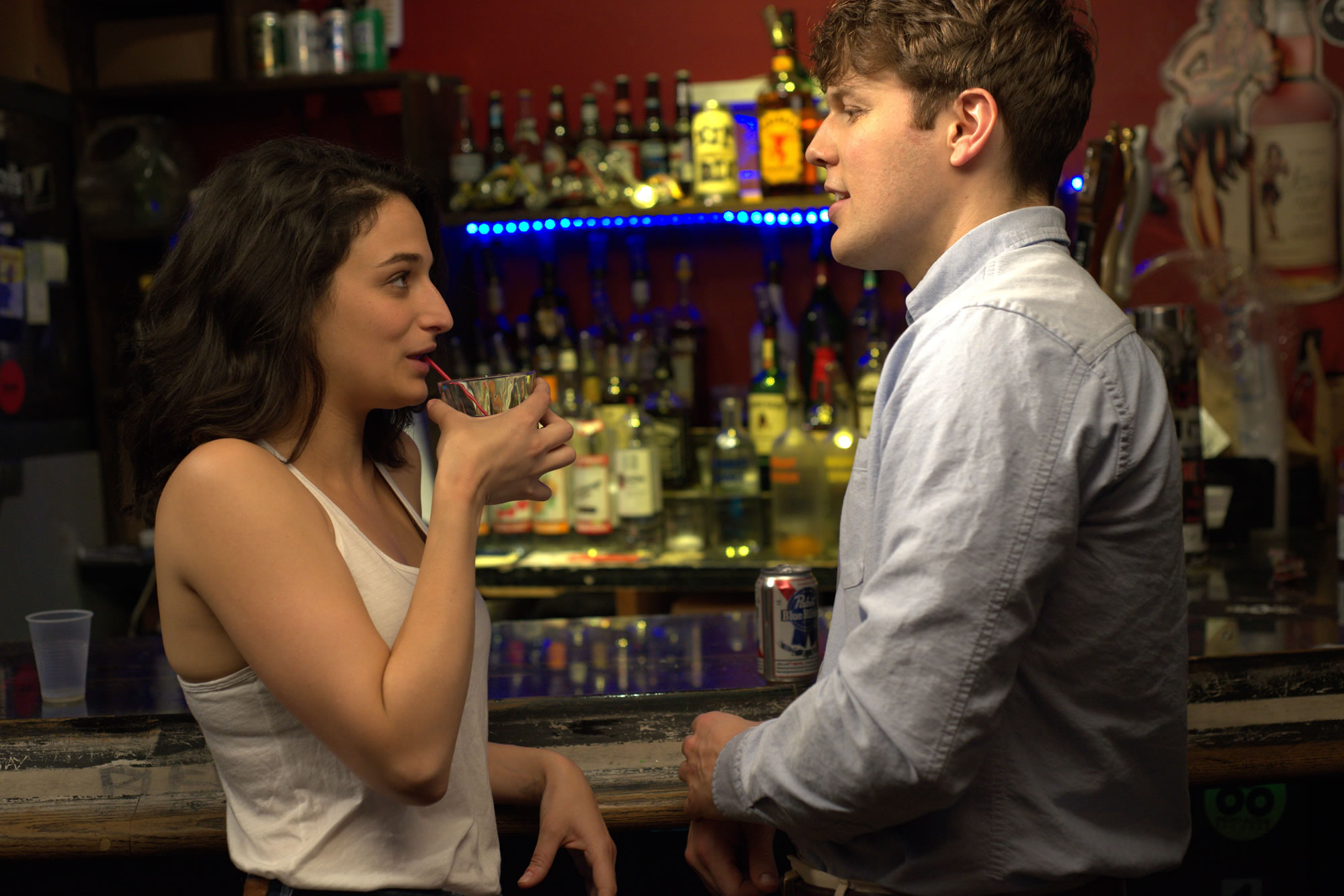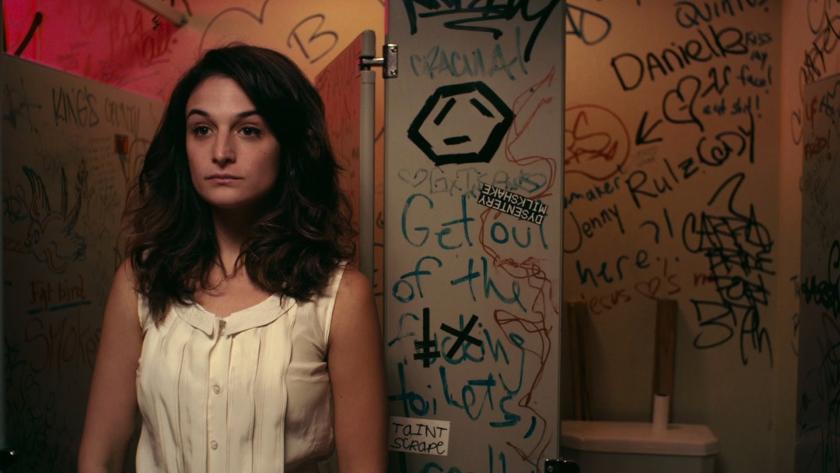Opening as it does on a frank, witty and somewhat extended discussion of female discharge, Obvious Child lets you know from the outset that it is every bit as uninterested in making nice as its blunt lead character. Jenny Slate is Donna, a late-twenties comedienne who drily mines her less-than-aspirational life and stagnant relationship for laughs during standup sets, only to be unceremoniously dumped one night when the boyfriend in question tires of being used as material.
Immediately, then, writer-director Gillian Robespierre is doing something compelling with the question of what makes good comedy. We laugh along with the audience at Donna’s witty and self-deprecating portrait of her love life, but viewed in retrospect after her boyfriend’s response – “Things haven’t been great between us for months” – the joke is no longer very funny.
Breakups are generally accepted as fertile ground for comedy; less so unwanted pregnancy, which is the subject matter that has led to the film being somewhat unfortunately dubbed as an “abortion rom-com”. After a rebound one-night stand with the preppy Max (Jake Lacy) leaves her pregnant, Donna knows immediately that she wants an abortion, and it says a lot about the conservative slant of modern Hollywood that this decisive moment still seems groundbreaking.
 There was a time only two or three years ago, too, when it still felt novel to see big-screen comedy centred around women in arrested development, rather than the man-children who for so long had the genre cornered. Between the game-changing success of Bridesmaids, the cultural impact of Lena Dunham’s Girls and related indie offshoots like last year’s Frances Ha, the balance has shifted, and yet Obvious Child still feels fresh and in many ways vital.
There was a time only two or three years ago, too, when it still felt novel to see big-screen comedy centred around women in arrested development, rather than the man-children who for so long had the genre cornered. Between the game-changing success of Bridesmaids, the cultural impact of Lena Dunham’s Girls and related indie offshoots like last year’s Frances Ha, the balance has shifted, and yet Obvious Child still feels fresh and in many ways vital.
“You are unapologetically yourself on that stage, and that’s why people love you,” says Donna’s supportive best friend Nellie (Gaby Hoffmann), giving in many ways a generous assessment. While Slate makes Donna consistently endearing, she’s also self-absorbed, abrasive and pathologically immature, and leaves you in no doubt as to whether she should be raising a child.
While the consequences of Donna “playing Russian Roulette with her vagina” are wryly understated, the emotional impact isn’t. The most fully-realised relationship in a script that often feels scattershot is with her initially nagging and goal-oriented mother, whose reaction to the news makes for the film’s most moving scene. Less successful is Max, who improbably tracks Donna down after their encounter and proves himself to be a bouquet-wielding suitor of the highest order.
Much like its flighty, flawed heroine, Obvious Child could easily have been insufferable with its neurotic tone and knee-jerk tendency towards crude humour. Instead, it’s a a frank, funny and emotionally sophisticated story that quietly declines to fall in line with what is expected of young women on the big screen.













Add comment